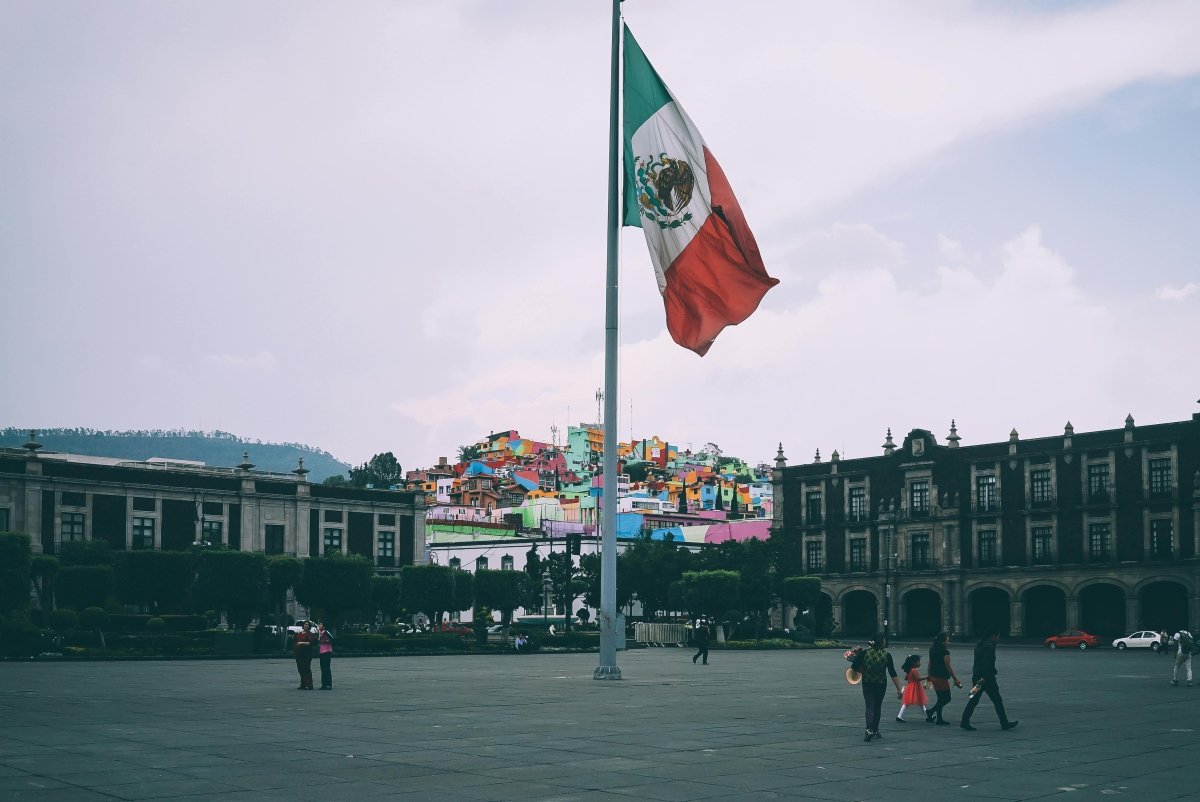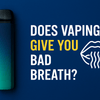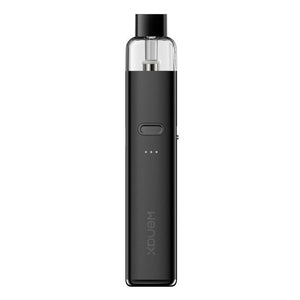Are Vapes Illegal in Mexico? A Deep Dive into Mexican Vape Laws

Are Vapes Illegal in Mexico? A Deep Dive into Mexican Vape Laws
Mexico's stance on vaping can be a bit of a head-scratcher. While a blanket ban exists, the reality on the ground is more nuanced. This in-depth guide will dissect the complexities of Mexican vape laws, covering everything from possession and public use to penalties and the future of vaping in the country. Whether you're a vaper planning a Mexican getaway or a resident seeking clarity, this article is your go-to resource.
The Evolving Legal Landscape: Deciphering Mexico's Vape Ban
In 2022, Mexico enacted a nationwide ban on the import and sale of vaping products. Announced by President Andrés Manuel López Obrador, this move aimed to curb the growing popularity of vaping, particularly among young people, and safeguard public health.
This ban falls under the General Law for Tobacco Control, which prohibits the "commerce, sale, and distribution of any object that resembles tobacco but is not tobacco," effectively encompassing e-cigarettes and vaping devices. However, the law contains exceptions, leading to confusion and inconsistent enforcement.
Can You Vape in Mexico? Public Use and Designated Areas
While the sale of vapes is generally prohibited, using a vape in Mexico falls into a grey area. Mexico has strict regulations on smoking in public places, and these often extend to vaping. You are not allowed to vape in:
- Indoor public spaces: This includes restaurants, bars, shops, and government buildings.
- Workplaces: Vaping is generally prohibited in workplaces, even in outdoor areas.
- Public transport: Vaping is not permitted on buses, trains, or in taxis.
Designated smoking areas, if available, must be in open-air spaces. However, confirm with the establishment or local authorities whether vaping is allowed in these areas, as interpretations of the law can vary.
Can You Take Vapes to Mexico? Traveling with Vaping Devices
Bringing vapes into Mexico for personal use is not explicitly prohibited. However, customs officials may confiscate vaping devices and e-liquids at their discretion, especially if they suspect commercial intent.
Be aware of the potential risks and the possibility of confiscation. If you choose to travel with your vape, it's advisable to:
- Pack it in your checked luggage: This reduces the likelihood of it being noticed by customs officials.
- Carry a small amount of e-liquid: Bring only what you need for personal use during your trip.
- Be prepared to answer questions: Customs officials may inquire about your vape and its intended use.
Important Note: The Canadian government has issued a travel advisory stating that electronic cigarettes and vaping devices are illegal in Mexico and may be confiscated. While this advisory is intended for Canadian travelers, it highlights the potential risks of bringing vapes into Mexico.
Can You Buy Vapes in Mexico? Navigating the Grey Market
Despite the ban, vapes can still be found in certain locations in Mexico due to exceptions in the law and the existence of a grey market. There are reputable vendor like Mister Vape that oerpate online. Vape shops may operate discreetly in tourist areas or online. However, exercise caution when purchasing vapes from these sources, as:
- Quality control is absent: Without proper regulation, there's no guarantee of the quality or safety of the products.
- Counterfeit products are prevalent: The risk of purchasing counterfeit or substandard vapes is high.
- Legal repercussions are possible: Purchasing from unauthorized sellers could lead to fines or other penalties.
Vaping in Mexico 2024 and Beyond: The Current Situation and Future Outlook
As of 2024, the ban on the sale and import of vapes remains in effect. Enforcement varies across regions and municipalities, with some areas being more strict than others.
The Mexican government has shown a strong commitment to tobacco control and public health, making it unlikely that the ban will be lifted soon. Discussions about further tightening regulations and increasing penalties for violations are ongoing.
A Closer Look at the General Law for Tobacco Control
To truly understand the complexities of vaping in Mexico, it's essential to delve deeper into the General Law for Tobacco Control. This law, enacted in 2008 and amended several times since, aims to protect public health by regulating the consumption, sale, and advertising of tobacco products.
The law's definition of tobacco products is broad, encompassing not only traditional cigarettes but also any product that "contains tobacco, nicotine, or any other substance that can be burned, inhaled, or consumed in any other way." This broad definition is what allows the law to be applied to vaping products, even though they do not contain tobacco.
Key provisions of the law that relate to vaping include:
- Prohibition of sale and import: Article 16 of the law prohibits the commerce, sale, distribution, and import of any object that resembles tobacco but is not tobacco. This provision is the legal basis for the ban on vaping products.
- Restrictions on advertising and promotion: The law prohibits any form of advertising, promotion, or sponsorship of vaping products.
- Protection of minors: The law prohibits the sale of vaping products to minors and restricts their use in areas where minors are present.
The law also establishes penalties for violations, which can include fines, confiscation of products, and even imprisonment in some cases.
Regional Variations in Enforcement: A Closer Look
While the General Law for Tobacco Control provides a national framework, its enforcement varies significantly across Mexico. This is largely due to the decentralized nature of law enforcement in the country, where local authorities have some leeway in interpreting and applying federal regulations.
Examples of Regional Variations:
- Tourist Areas: Cancun, Playa del Carmen, and Los Cabos tend to have more relaxed enforcement, with some vape shops operating discreetly and vaping tolerated in designated outdoor areas of some establishments. This is likely driven by the desire to avoid alienating tourists, a significant source of revenue.
- Major Cities: Mexico City, Guadalajara, and Monterrey generally have stricter enforcement, with authorities actively cracking down on the sale of illegal vaping products and enforcing the ban in public spaces.
- Border Regions: Cities bordering the United States, like Tijuana and Ciudad Juarez, may have a more visible presence of vaping products due to their proximity to the US market, where vaping is legal. However, enforcement can still be unpredictable.
This inconsistency can be frustrating for vapers, highlighting the importance of researching local regulations before traveling or vaping in a specific area.
Health Effects of Vaping: A Deeper Dive into the Science
The debate on vaping's health effects rages on. While promoted as a less harmful alternative to smoking, long-term consequences remain under investigation.
Potential Benefits:
- Harm Reduction: Vaping eliminates combustion, reducing exposure to numerous carcinogens and toxins found in cigarette smoke. Public Health England estimates vaping to be at least 95% less harmful than smoking.
- Smoking Cessation Aid: Studies, like one published in the New England Journal of Medicine, suggest vaping can be more effective than traditional nicotine replacement therapies in helping smokers quit.
- Control Over Nicotine Intake: Vapers can gradually reduce nicotine strength in their e-liquids, aiding in eventual nicotine cessation.
Potential Risks:
- Nicotine Addiction: E-liquids contain nicotine, a highly addictive substance with potential negative impacts on cardiovascular health and adolescent brain development.
- Respiratory Issues: Emerging research suggests links between vaping and respiratory problems like EVALI (e-cigarette or vaping product use-associated lung injury), though this is often linked to vitamin E acetate in black market THC vapes.
- Other Chemicals: While significantly reduced compared to cigarettes, some potentially harmful chemicals like formaldehyde and heavy metals can be present in e-liquid vapor.
The History of Vaping in Mexico: From Novelty to Prohibition
Vaping in Mexico has followed a trajectory of increasing regulation, culminating in the current ban.
- Early 2000s: Vaping products enter the Mexican market with minimal regulation, viewed as a novel alternative to smoking.
- 2008: The General Law for Tobacco Control is enacted, providing a broad framework for regulating tobacco products, potentially including vaping products.
- 2010s: Vaping gains popularity, but concerns about youth uptake and potential health risks emerge.
- 2020: The Mexican Supreme Court upholds the ban on vaping product sales, solidifying the legal basis for stricter regulation.
- 2022: President López Obrador announces a complete ban on the import and sale of vaping products, citing public health concerns.
This timeline reflects a growing global trend of increased regulation of vaping products, driven by concerns about their long-term health effects and appeal to youth.
Alternatives to Vaping: Navigating Smoking Cessation in Mexico
For those seeking to quit smoking in Mexico, vaping is not a viable option due to the ban. However, several alternatives are available:
- Nicotine Replacement Therapy (NRT): NRT products like patches, gum, and lozenges provide controlled nicotine doses to manage withdrawal symptoms. These are available over-the-counter at pharmacies throughout Mexico.
- Prescription Medications: Medications like bupropion (Zyban) and varenicline (Champix) can help reduce cravings and withdrawal symptoms. These require a prescription from a Mexican doctor.
- Counseling and Support Groups: Individual or group therapy and support groups provide behavioral strategies and encouragement for quitting. Resources like the Mexican Institute of Public Health offer smoking cessation programs.
- Traditional Methods: While less structured, some individuals find success with methods like exercise, meditation, and support from family and friends.
It's crucial to consult with a healthcare professional to determine the most suitable and effective smoking cessation approach.
Personal Anecdotes: Vapers in Mexico Share Their Experiences
To provide a more personal perspective, let's hear from vapers in Mexico about their experiences navigating the legal landscape:
- Maria, a resident of Mexico City: "I started vaping to quit smoking and it really helped. Now with the ban, it's been stressful. I have to rely on friends bringing me supplies from abroad or risk buying from unreliable sources. I wish the government would reconsider the ban, at least for adults trying to quit smoking."
- David, a frequent traveler to Cancun: "I always bring my vape when I visit Cancun. I've never had any issues at customs, and I can usually find places to vape discreetly. It's definitely more relaxed there compared to other parts of Mexico."
- Sofia, a shop owner in Guadalajara: "I used to sell vapes in my shop, but I had to stop after the ban. It's frustrating because I know many of my customers relied on vaping to quit smoking. Now they're back to cigarettes or struggling to find alternatives."
These anecdotes highlight the diverse experiences of vapers in Mexico, showcasing the challenges and frustrations they face due to the ban.
Comparing Vaping Laws: Mexico vs. the World
Mexico's approach to vaping aligns with a growing global trend of increased regulation. However, it stands in contrast to some countries with more liberal approaches.
- United States: While regulations vary by state, vaping is generally legal in the US, with a large and thriving market for vaping products. However, concerns about youth vaping have led to restrictions on flavors and advertising.
- United Kingdom: The UK embraces vaping as a harm reduction tool, with the National Health Service endorsing its use for smoking cessation. Vaping products are readily available, and public health campaigns promote vaping as a less harmful alternative to smoking.
- Canada: Canada has a more restrictive approach than the UK, with regulations on advertising and flavors. However, vaping products are legal and accessible, and the government recognizes their potential role in harm reduction.
- Australia: Australia has some of the strictest vaping laws globally, requiring a prescription for nicotine-containing e-liquids. This approach aims to minimize nicotine addiction and protect public health.
Mexico's ban reflects a more precautionary approach, prioritizing the potential risks of vaping over its potential benefits in harm reduction.
Conclusion: Navigating the Murky Waters with Awareness
Mexico's vaping landscape is complex and ever-evolving. While the ban on the sale and import of vaping products is in effect, enforcement varies, and access to vapes persists through the grey market.
Whether you're a resident or a traveler, staying informed about the latest regulations and potential risks is crucial. For those seeking to quit smoking, exploring alternative cessation methods available in Mexico is essential.
By understanding the nuances of Mexican vape laws, respecting the regulations, and prioritizing public health, you can navigate this murky landscape with awareness and make informed decisions about your vaping journey.






